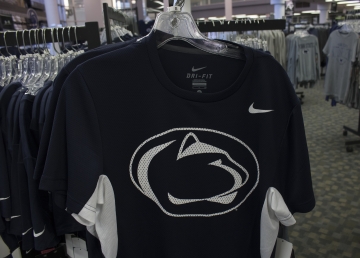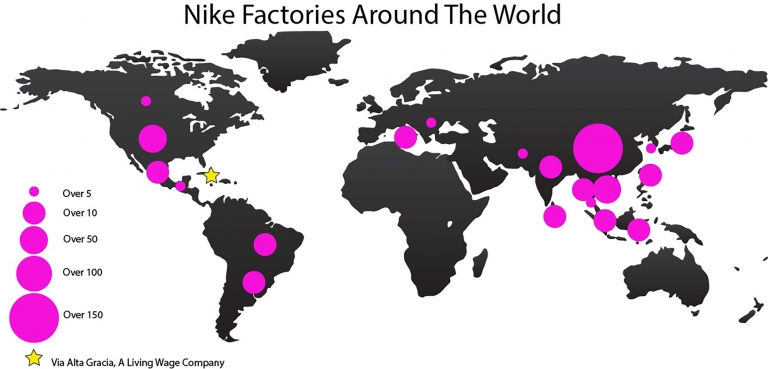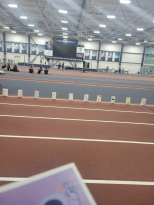Student labors to improve the lives of workers both locally and abroad
Matthew Jentis is a junior at Penn State studying labor and employment relations and Spanish, while simultaneously pursuing a master’s degree in human resources and employment relations. He has a strong interest in history and seeks to apply his knowledge of past labor employment cases to the present.
 This is an example of one of the many Penn State Nike brand T-shirts in the Penn State Student Bookstore. Photo by Courtney Testa
This is an example of one of the many Penn State Nike brand T-shirts in the Penn State Student Bookstore. Photo by Courtney TestaJentis’ says he wants to improve the lives of workers both locally and abroad. He is currently the treasurer of a student organization here at Penn State called ‘United Students Against Sweatshops (USAS)’. USAS advocates for the betterment of working conditions in sweatshops and factories around the world. At the present moment, USAS is campaigning to end Penn State’s contract with Nike specifically for non-athletic apparel. This is in part due to Nike’s blockage of third party labor inspectors into its factories.
Jentis said many sweatshops and factories around the world do not support a living wage for their workers, forcing them to live in squalor. He said he believes it is important to become aware of the areas sweatshops are most common such as parts of Asia and South America. In addition, Jentis said that people need to personify the cause by reminding themselves that their “apparel was made by someone else who was working just as hard as I am to make a living wage for their families.”
Through USAS Jentis had the opportunity to travel to the Dominican Republic to the small town of Via Alta Gracia. There, he was able to experience a functioning ethical factory first hand. He said the workers at Via Alta Gracia earn a living wage and have a union in which they are able to employ collective bargaining techniques to ensure the quality of their working conditions.
Jentis said he believes that ethical collegiate apparel is achievable and that it is up to us as students to pave the way.
“As students we are the ones that get to choose what we wear everyday, what we are going to be showing to our friends at the latest club meeting or when we are just hanging out on the Hub lawn. We are the people who are able to really show what we are interested in." Jentis said, "If we are a little bit more aware of apparel we can really continue to make a great difference in the lives of workers as students!”
Where Apparel Factories Are Common

This infographic illustrates the regions in which Nike factories are located along with a depiction of the number of factories in that region. It is evident that Nike has a concentration of factories in the developing countries of south east Asia.
The location of Nike factories strongly correlates to where companies are finding cheap labor, and where sweatshops are likely to exist. Exact information on the locations of sweatshops across the globe are not readily available.
Nike has 620 factories with a total of over 1 million workers. This information was published on manufacturingmap.nikeinc.com, in an effort to be more transparent with its consumers after allegations of supporting sweatshop conditions.
Yet, most recently Nike has been under fire for its prohibition of a third party inspector group known as the Workers Rights Consortium (WRC). According to Jentis, “The Workers Rights Consortium consists of inspectors in factories who are not affiliated with any companies and go in without any biases. However, the Fair Labor Association (which is allowed Nike’s factories) is affiliated by Nike.” Therefore, Jentis said that the WRC is considered more ethical among the labor movement. As a result, Penn State USAS is currently negotiating with the university administration to terminate Penn State’s Nike contract for as long as Nike continues to prohibit the WRC from its factories.
(video credit: Sweatshop footage from Bangladesh by Ian Dixon)








